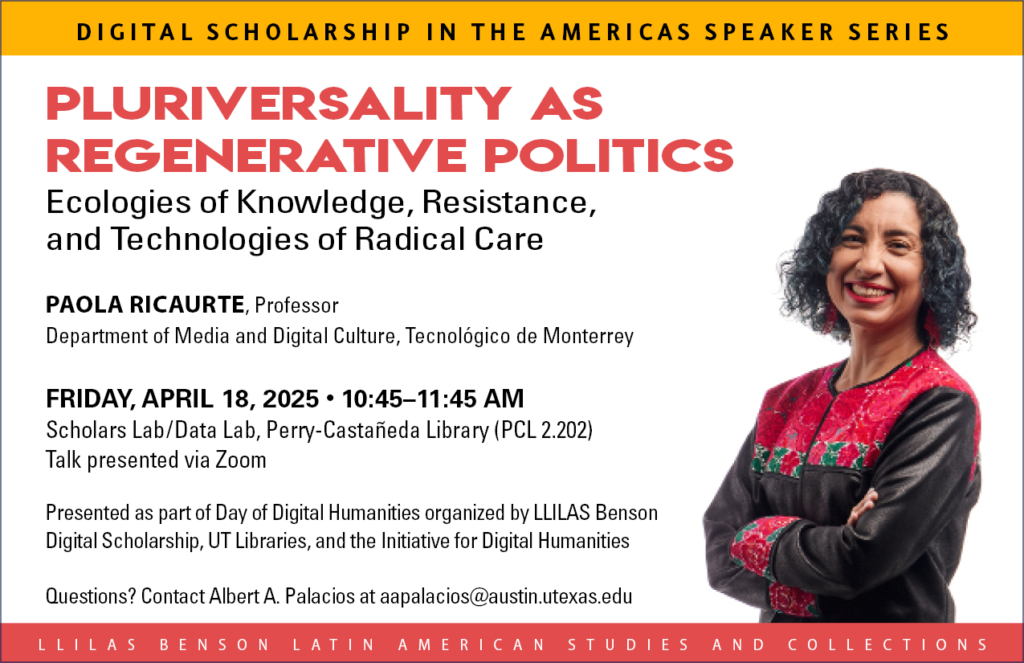 Friday, April 18, 10:45-11:45 pm (CDT), Online
Friday, April 18, 10:45-11:45 pm (CDT), Online
Registration
In an era of multidimensional crises, the urgency of regenerative politics has never been greater. This talk explores pluriversality—the coexistence of multiple ways of knowing, being, feeling, doing, and living—as a framework for fostering an ethico-political commitment to radical care and social transformation. Drawing from decolonial thought, Indigenous epistemologies, feminist ethics, and grassroots resistance movements, I argue that pluriversality as regenerative politics offers a crucial response to the logics of extermination embedded in the modernity/coloniality project. This talk invites us to think with the communities and movements of Abya Yala that enact pluriversal politics in their struggles for autonomy, justice, and a dignified life. It calls for a renewed commitment to collective survival and planetary regeneration, urging us to recognize the many worlds that already exist within and beyond the ruins of the present.
Paola Ricaurte is a full professor in the Department of Media and Digital Culture at Tecnológico de Monterrey and a faculty associate at the Berkman Klein Center for Internet & Society at Harvard University. She co-founded Tierra Común, a network of academics, practitioners, and activists focused on decolonizing data. She leads the Latin American and Caribbean hub of the Feminist AI Research Network. She serves on various expert committees, including the Global Partnership on AI –where she co-led the project Towards Substantive Equality in Artificial Intelligence: Transformative AI Policy for Gender Equality and Diversity–, the UNESCO AI Ethics Experts Without Borders network, and the UNESCO Women for Ethical AI (W4EAI) platform, where she co-leads a report on AI and inequalities. Beyond her academic work, she is actively involved in civil society initiatives that promote digital rights, support the development of feminist technologies, and raise awareness of the socio-environmental impacts of technological development.